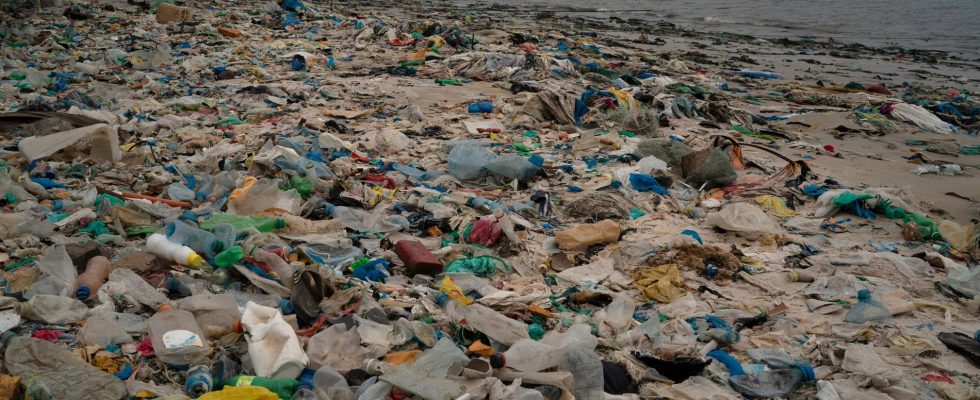Published: Just now
Plastic may soon be as common as fish in the oceans and too much is incinerated and causes emissions.
When the EU’s environment ministers meet in Stockholm today, the plastic problem is on the agenda. At the same time, the government wants to scrap or greatly reduce the plastic bag tax at home.
The EU’s environment ministers are in Stockholm for an informal, two-day meeting. During a working lunch, they will discuss how plastic use can be reduced and how more plastic can be recycled.
Because plastic is a big problem today, both because millions of tons end up in the oceans and harm plants and animals, and because so much is burned and causes emissions and damages the climate.
Swedish example
Svante Axelsson from Fossilfritt Sweden is invited to start the ministers’ discussion. His message is that business can lead the way and that there are commercial forces pushing for a change. As examples, he takes Swedish plastic recycling’s facility in Motala and the chemical company Borealis, which plans to make plastic from waste.
– It is not artificial respiration, but many companies have simply decided not to use virgin plastic, he says.
One problem is that so-called virgin plastic today is cheaper and sometimes also of better quality than recycled plastic. But if the companies want the recycled plastic, a market is created and for the consumer it doesn’t have to be that much more expensive in the end, according to Axelsson.
Abolished plastic bag tax
At the same time as Environment and Climate Minister Romina Pourmokthari (L) is leading the discussions on solving the plastic problem on a global level, it was recently announced that the government wants to abolish or greatly reduce the plastic bag tax at home. The tax was introduced by the red-green government as a way to reduce plastic use, but the proposal was pushed by the Liberals in the January agreement.
The reason why plastics are now being discussed by the EU ministers is that a new global agreement is being negotiated under the auspices of the UN. If the countries of the world succeed in reaching an agreement, it is estimated to be as big as when the Paris Agreement was hammered out in 2015. And the next opportunity for negotiations is precisely in Paris, at the end of May.
The EU has been pushing to get an agreement in place and during the lunch discussion the ministers will discuss, among other things, what the EU’s most important priorities should be in the upcoming negotiations, which are expected to last until the end of next year.
